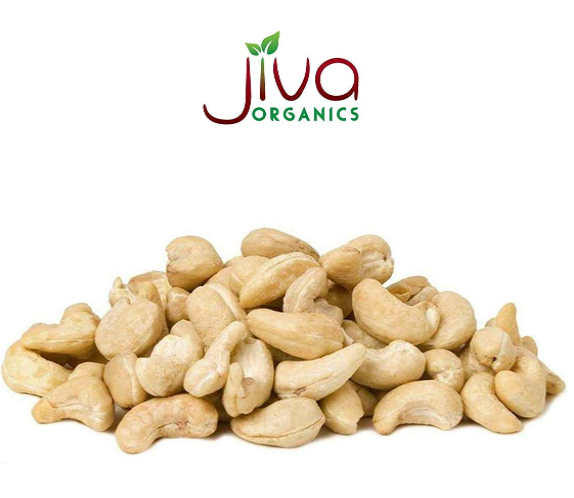Seven Benefits of Almonds and How to Enjoy Them

How to Test the Doneness of Any Type of Cookie
October 25, 2024
Indulge Your Taste Buds with Baked Ruffles Cheddar & Sour Cream – A Flavorful Delight!
October 30, 2024Known for their buttery flavor and crunchy texture, almonds are a versatile ingredient that is often added to both sweet and savory dishes. They are also a great source of essential nutrients and have many health benefits. Let’s learn more about the main benefits of almonds, backed by science, and how they compare to other nuts.

What Are Almonds?
Although almonds are often referred to as nuts, almonds are technically a type of seed that comes from the almond tree. These trees are native to Western Asia but are now cultivated and cultivated across the globe. Almonds are slightly more expensive compared to some other types of nuts, which is due to their popularity and the labor-intensive harvesting process required.
In appearance, almonds are light brown in color, oval in shape, and have a smooth shell. They have a rich, nutty flavor that is perfect for a variety of recipes, adding extra crunch to salads, or bringing a tender texture to baked goods. They can also be made directly into healthy snacks that can be baked, eaten raw, or pickled.
Nutritional Information
Almonds are a great source of healthy fats, and each serving contains a lot of fiber, plant protein, vitamins, and minerals. One ounce or about 23 almonds (about a handful) provide the following nutrients:
- Calories: 164
- Fat: 14.1 grams
- Saturated fat: 1.1 grams
- Cholesterol: 0 mg
- Sodium: 0.3 mg
- Carbs: 6.1 grams
- Dietary fiber: 3.5 grams
- Protein: 6 grams
- Vitamin E: 7.3 mg
- Manganese: 0.6 mg
- Magnesium: 76.5 mg
- Copper: 0.3 mg
- Riboflavin: 0.3 mg
- Phosphorus: 136 mg
Almonds are particularly high in monounsaturated fats, including oleic acid, a heart-healthy fat that may help regulate weight, food intake, and metabolism. They are also a great source of vitamin E, a micronutrient that doubles as an antioxidant that boosts immune function and reduces inflammation.
Compared to other nuts, almonds are in the middle of the pack in terms of calorie and fat content. For example, walnuts contain about 185 calories and 18.5 grams of fat per 18.5 ounces. Cashews, meanwhile, contain only about 155 calories and 12.4 grams of fat per ounce.

Health Benefits of Almonds
Aside from the nutty flavor and versatility, there are plenty of reasons to add a handful of almonds to your day. From improving heart health to curbing hunger and speeding up weight loss, almonds have a variety of health benefits. Read on to learn about some of the main health benefits of almonds:
1. They can control cholesterol.
Adding almonds to your snack may help lower cholesterol levels. Almonds contain heart-healthy monounsaturated and polyunsaturated fats, which have been linked to lower ‘bad cholesterol’ or LDL levels in the body. Almonds contain more fiber per ounce than other nuts, which may help lower cholesterol levels.
One study in adults found that eating whole roasted almonds every day for six weeks for six weeks resulted in a significant reduction in LDL cholesterol levels, compared to eating a less healthy control snack (muffin). Another review concluded that eating about 1.5 ounces of almonds per day can lower total cholesterol and LDL cholesterol7, as well as a number of other risk factors for heart disease.
2. They may help balance blood sugar levels.
Almonds are a great snack to balance blood sugar. When eaten alone or in combination with other high-carbohydrate foods such as fruits, the combination of fiber, fat, and protein can promote a slow, steady rise in blood sugar levels.
Interestingly, one study showed that eating 2 ounces of almonds daily for 12 weeks reduced hemoglobin A1c (a marker of long-term blood sugar control) in adolescents and young adults at risk of diabetes. Additionally, a 2023 study found that eating about 1.5 ounces of almonds per day can enhance insulin sensitivity, which can improve the body’s ability to use insulin to control blood sugar levels.
3. They may be beneficial for weight loss.
While almonds may be high in calories, they are actually good for your waistline. This is because almonds contain a lot of protein, fat, and fiber per serving, which can increase feelings of fullness and help you stay fuller for longer.
An analysis of 28 studies found that almond consumption may be associated with a reduction in body weight and fat mass. In another study, eating almonds as a morning snack increased subjective satiety compared to no snacking. Not only that, but participants consumed the same amount of calories throughout the day, regardless of whether they ate 1 ounce or 1.5 ounces of almonds.
4. They can help you keep your heart healthy.
Almonds have an excellent nutrient profile and are a great addition to a heart-healthy diet. Almonds contain several nutrients related to heart health, including potassium, which is important for maintaining healthy blood pressure, as well as vitamin E and monounsaturated fats.

Studies have shown that eating nuts regularly can even help prevent heart disease. According to one review, increasing nut intake was associated with a reduced risk of cardiovascular disease12 and coronary heart disease. In another analysis, researchers concluded that eating more nuts may also reduce the risk of heart disease and dying from heart disease.
5. They are rich in antioxidants.
Almonds are a great source of antioxidants, which are compounds with health-promoting properties that can fight inflammation and chronic disease. They are particularly high in vitamin E, a fat-soluble antioxidant that protects cells from oxidative damage.
One study found that eating almonds increased blood levels of antioxidants while also boosting the body’s antioxidant defense system. A 2018 animal study also showed that almond supplementation helped delay or prevent memory problems in rats due to their powerful antioxidant properties.
6. They can enhance gut health.
The health of the digestive tract plays a central role in almost every other aspect of health. In fact, it is believed that the gut microbiome – which contains trillions of microbes in the gut – may be involved in the development of many different diseases, from cancer to diabetes. Eating almonds is a simple strategy to improve your gut health.
A review published in the journal Nutrition reports that almonds can support the health of the gut microbiota by increasing the diversity and richness of the microbiota, improving the ratio of good bacteria to bad bacteria, and increasing the concentration of gut-healthy compounds. Similarly, one study showed that eating 2 ounces of almonds per day could improve the diversity and composition of the gut microbiota in college students.
7. They can improve bone density.
Almonds provide many of the nutrients needed to help maintain bone health21, including calcium, magnesium and phosphorus. According to an older study, almonds can reduce the formation of osteoclasts, a type of cell that breaks down bone tissue, by 20%, which may contribute to its bone-enhancing efficacy. However, more high-quality, up-to-date research is needed.

Recommended Serving Size
So, how many almonds do you need to eat each day to take full advantage of the abundance of health-promoting properties they provide? Sticking to about one serving per day (about 1 ounce, or 23 capsules) is a good goal for most people. However, some of the studies discussed above have found that eating two servings per day can provide more additional benefits.
Still, it’s a good idea to control portion sizes, especially if you’re trying to lose weight. While almonds are filling, they’re also an energy-dense food, so it’s worth paying attention to portion sizes unless you’re very active or have high energy needs.
Allergies and Side Effects
Although almonds are rich in essential nutrients, they may not be suitable for everyone. First and foremost, people with allergies to almonds or nuts should avoid almonds altogether. Also, since they are high in calories, it’s best not to overdo it on serving sizes if your goal is to lose weight.
Keep in mind that almonds can go bad, so be sure to check for signs of spoilage before eating them. Black mold spots, unpleasant smells, and bitter tastes are all some of the signs that your almond bag may be past its best.
Buying and Storage Tips
- Choosing organic almonds can help reduce exposure to the harmful chemicals that may be used when growing almonds.
- Choose raw, unsalted almonds because of their nutritional value and versatility.
- Make sure to store the almonds in an airtight container to maximize their shelf life. While almonds can be stored in a cool pantry, keeping them in the fridge or freezer can also help them stay fresh for longer.
At Last
Almonds are packed with nutrients and may even have some great health benefits, especially for your heart, gut, and waistline. In addition, they have a unique taste and texture that are suitable for a variety of recipes. Grab a handful of almonds for a healthy, high-protein snack, or spread a spoonful of almond butter on toast, fresh fruit, or your favorite baked goods and enjoy.



